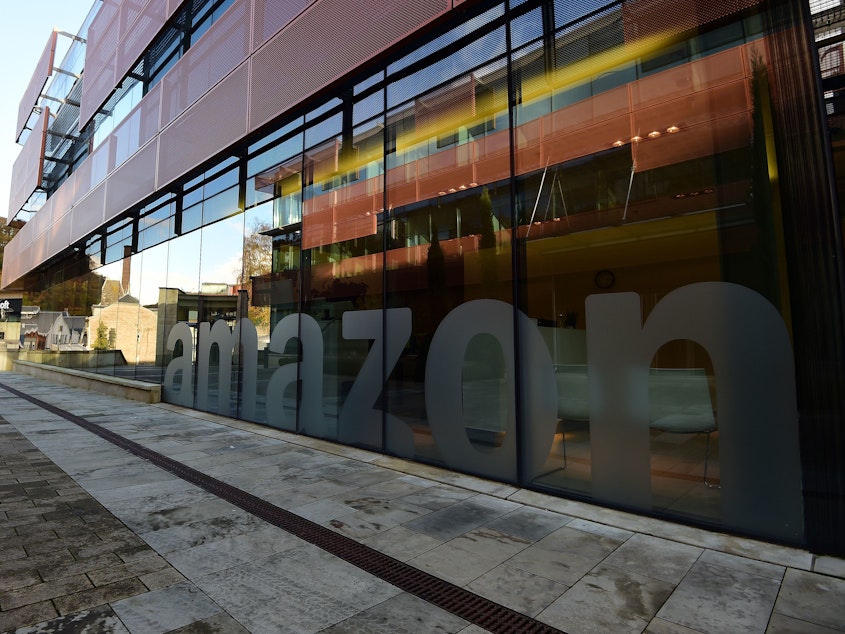Amazon Wins Case Against EU Regulators Over Luxembourg Taxes

Amazon has won a major court fight against a European Commission order that it pay 250 million euros ($303 million) in back taxes to Luxembourg deemed "illegal state aid."
The General Court of the European Union is based in Luxembourg, where Amazon has its European headquarters. It rejected the European Commission's contention that the online retailing giant enjoyed a selective advantage in the tax deal.
"The Commission did not prove to the requisite legal standard that there was an undue reduction of the tax burden of a European subsidiary of the Amazon group," the court concluded.
In a statement emailed to NPR, Amazon said it welcomes the court's decision, "which is in line with our long-standing position that we followed all applicable laws and that Amazon received no special treatment."
"We're pleased that the Court has made this clear, and we can continue to focus on delivering for our customers across Europe," the company said.
The case stems from a 2014 European Commission investigation into Amazon's tax arrangement in Luxembourg, which ultimately concluding that the country had granted undue tax benefits of around 250 million euros. EU competition commissioner Margrethe Vestager said the deal was illegal under EU rules because Amazon was allowed to pay substantially less tax than other businesses. She ordered Luxembourg to recover the money.
"Luxembourg gave illegal tax benefits to Amazon. As a result, almost three quarters of Amazon's profits were not taxed," Vestager said in a 2017 statement. "In other words, Amazon was allowed to pay four times less tax than other local companies subject to the same national tax rules."
In 2019, the European Commission also opened a formal antitrust investigation into Amazon, saying last year that it had reached a "preliminary view" that the company "breached EU antitrust rules by distorting competition in online retail markets."
However, Tuesday's ruling comes as a blow to Vestager, who has enjoyed only a mixed track record in her efforts to crack down on what she says are sweetheart tax deals between big multinationals and individual EU countries.
In 2019, the General Court upheld an order for Fiat Chrysler Automobiles to pay 30 million euros ($36 million) in back taxes to Luxembourg. But last year, the court threw out an order for Apple to pay 13 billion euros ($15 billion) in taxes to Ireland. It also rescinded similar orders on Starbucks in the Netherlands, and BP and BASF in Belgium.
The Fiat Chrysler case is being appealed to the Court of Justice of the European Union, the EU's highest court, The Irish Times reported Monday. Likewise, the Amazon case is likely to come before the CJEU on appeal.
Markus Ferber, a member of the European Parliament from the center-right European People's Party, called the Amazon ruling "an embarrassment for the commission" and suggested that Vestager "prepare her cases more thoroughly so that they can hold up in a court of law."
Last year, Amazon reportedly brought in a record 44 billion euros in revenue in Europe, fueled largely by online shopping during the coronavirus pandemic. Even so, the company paid no corporate tax to Luxembourg.
Amazon, however, maintains that it pays taxes and associated expenses on revenue it earns in the U.K., Germany, Spain, France and Italy, where it has branches.
In a separate case decided on Tuesday, the General Court sided with the European Commission that French utility Engie benefited from a tax advantage and upheld an order that it 120 million euros ($145.7 million) in back taxes to Luxembourg.
Editor's note: Amazon is among NPR's recent financial supporters. [Copyright 2021 NPR]



